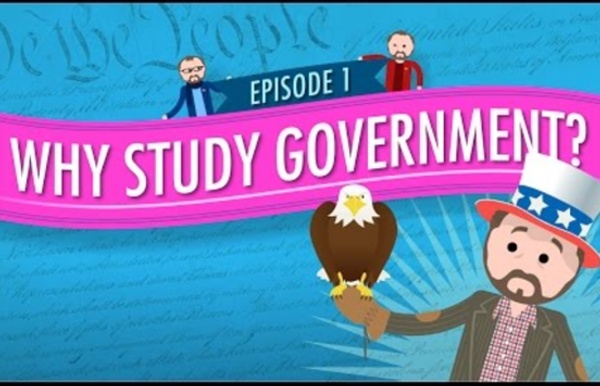



http://www.youtube.com/watch?v=lrk4oY7UxpQ
Related: USAThe Impeachment Process and President Trump - The Choices Program Objectives Students will: Understand the Constitutional basis and historical precedents for impeachment.Develop media source analysis skills.Distinguish between opinion and fact.Consider evidence, bias, audience, and author expertise to assess source reliability.Compare and contrast opinions about the potential impeachment of President Trump. Note to Teachers
Blacks and whites see racism in the United States very, very differently President Donald Trump's various responses to clashes between white supremacists and counter-protesters in Charlottesville this weekend drew widespread condemnation, but also brought decades-old questions to the surface of American political and moral discourse. "I think there is blame on both sides," Trump said Tuesday, reverting back to the wording from a statement he made Saturday that pointed blame at counter-protesters as much as white supremacists. "I'm not putting anybody on a moral plane ... I thought what took place was a horrible moment ... but there are two sides."
5 facts about blacks in the U.S. More than 40 million blacks live in the United States, making up around 13% of the nation’s population, according to 2016 Census Bureau estimates. Here are five facts about the U.S. black population today, drawn from Pew Research Center studies in the past year. 1A growing share of blacks are completing high school and college.
Americans Fear Heated Politics Rhetoric Could Spark Violence: Poll Nearly three-quarters of Americans – and a clear majority in both parties – believe that elected officials should not use heated or aggressive language because it raises the risk of violence, according to a new report from the Pew Research Center. Pollsters found that 78% of respondents believe such language makes violence more likely, with Democrats more likely than Republicans to agree, 91% compared to 61%. The same percentage of Republicans say such language should be avoided because it could encourage violence, while 83 percent of Democrats agree.
Bleachgate is the archetype of a Trump media cycle We all remember the old saw. Your mom asks you why you did something and you respond that your friend or cousin thought it was a good idea. To which Mom gamely replies, "Would you jump off a bridge if Michael told you to do it? Okay then, don't shoot BB guns at Neighbor Dick's window. It doesn't matter if he's on vacation." McDonald’s Workers in Denmark Pity Us Kristina Hansen, 27, who works at a nonunion hamburger chain called Cock’s & Cows, told me she is now thinking of buying an apartment. Surprised, I noted that few Americans working at hamburger chains are buying their own homes, and we discussed American fast-food pay. “How can they survive on that money over there?” she asked me.
The American Myths of Westward Expansion That Just Won't Die When we first got together in our early twenties, my boyfriend and I, both fresh out of college, would fight regularly about the pioneers. We fought about the pioneers on long car trips through the scorched and gleaming landscapes of California, while walking the blooming streets of San Francisco, the city where we were both from, and while cooking dinner in our first apartment, and then our second (hard to imagine a time we could afford an apartment in San Francisco.) Because we were both raised in California, we’d been steeped in the narrative of westward expansion, of manifest destiny, of California as the landscape where hardscrabble dreams came true—be it our own, my father’s, my great grandfather’s, the millions of migrants and explorers (or were they invaders?)
God In America: Timeline - Faith in America 1598160716201624162816301632163416351636163816501654166316801682168917011734-1760s174017501754176817691770177617841784 1786178717891790-184017911794179718001800-1840180118021810181218131814181518181819182018241825182618301830-18501830s18311832183318341836183818381840s1842184218431844May 1844June 18441844-185718451847184818501850s1851185718581859186118621863186518681869187418751877187818791880July 11, 188318901880s and 1890s1891189318951899190619071908191519201920s19241925192619281930s19301933193919401942194419451947194819491950s1952195319551956195819601960s and 1970s196119621962-65196319641965196619681970197119721973197519761976-7719791980198419851986198719891990199119921993199519961998200020012003200420052006200720082009 ReligiousLiberty +Church of England "established" in Virginia; supported with public fundsIn 1624, King James officially charters Virginia as a royal colony. +bloody hands with cross screen grab?
A Nation's Story: "What to the Slave is the Fourth of July?" On July 5, 1852, Frederick Douglass gave a keynote address at an Independence Day celebration and asked, "What to the Slave is the Fourth of July?" Douglass was a powerful orator, often traveling six months out of the year to give lectures on abolition. His speech was delivered at an event commemorating the signing of the Declaration of Independence, held at Corinthian Hall in Rochester, New York. It was a scathing speech in which Douglass stated, "This Fourth of July is yours, not mine, You may rejoice, I must mourn." In his speech, Douglass acknowledged the Founding Fathers of America, the architects of the Declaration of Independence, for their commitment to "life, liberty and the pursuit of happiness":
How Fox News Became a Language All happy families are alike; some unhappy families are unhappy because of Fox News. You might have come across the articles (“I Lost My Dad to Fox News” / “Lost Someone to Fox News?” / “‘Fox News Brain’: Meet the Families Torn Apart by Toxic Cable News”), or the Reddit threads, or the support groups on Facebook, as people have sought ways to mourn loved ones who are still alive.